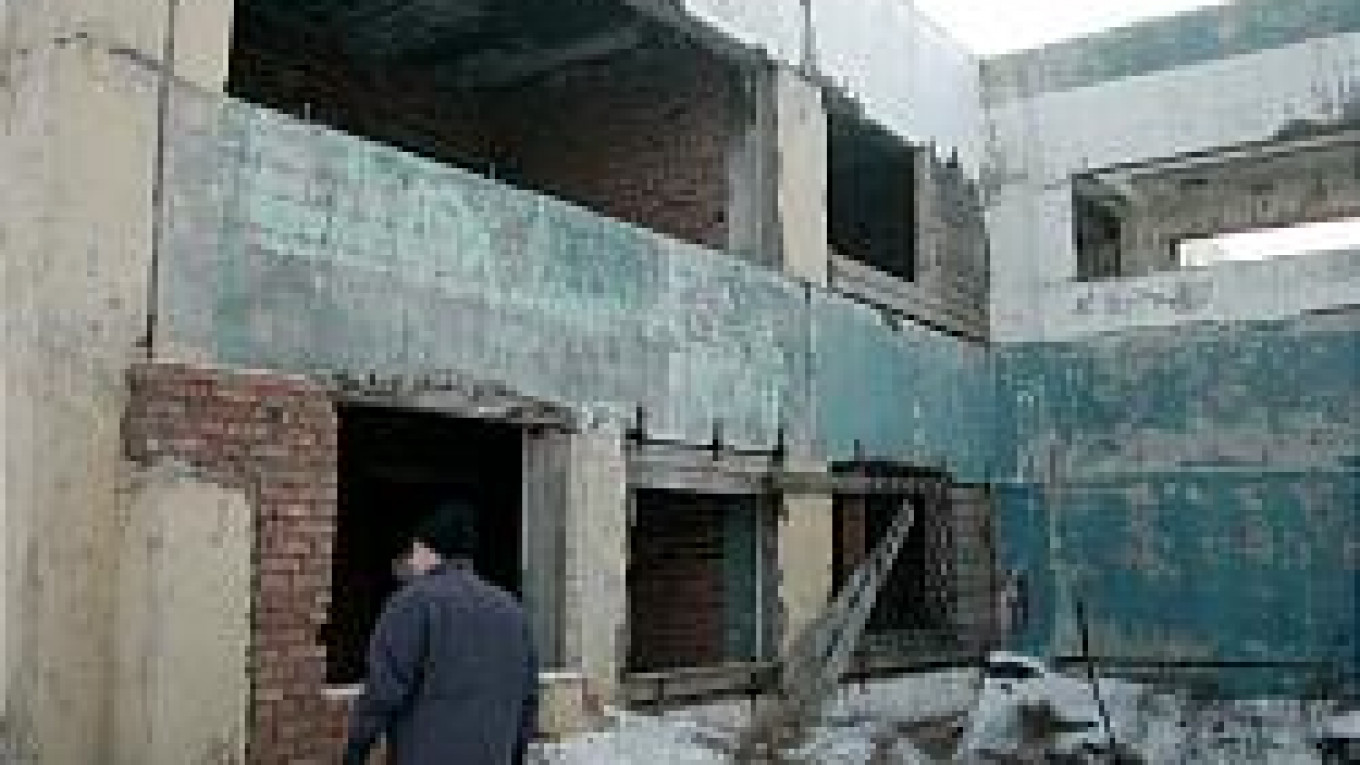"The doctor's advice was 'Get a better house,'" Weaver said.
Weaver was there to help them do just that. She is helping residents of two Russian cities learn to build homes for their neighbors as affiliates of Habitat for Humanity International, a U.S.-based, nonprofit Christian organization that builds houses for people without adequate shelter.
Habitat's first Russian affiliate, in the eastern Siberian city of Ulan Ude, was officially registered in November, and residents will begin renovating two apartments at the end of January.
Weaver is also setting up an office in Moscow, Habitat Russia, which will help Russian affiliates, raise funds, recruit volunteers and take care of public relations.
"We in Habitat believe that the organizations should be locally led so that it is locals helping each other and not foreigners," Weaver said.
"They came, taught us and helped to plan how to do things," said Galina Petrovna, head of Habitat Ulan Ude's board of directors. "Now we have purely organizational issues. We have to decide things like where to build and how to deal with the government."
Habitat Ulan Ude began three years ago, when Andrei Andreyev returned to his hometown from an exchange program to the United States and brought photographs of volunteers working on a Habitat building. He and Petrovna began to create an affiliate group with teachers, students, elders and construction workers.
"We have so few programs for people who are in need, especially of housing," Petrovna said. "We have a government mortgage program. But it charges a high interest rate."
"Our program will be a big help to people in need, who don't have a home or who live in run-down homes. We have many such people," she said.
More than 72 percent of Ulan Ude's population lives in buildings that require major repairs or lack water or sewage systems, according to a study by the Ulan Ude Statistics Commission. Overcrowding is a serious problem.
Habitat sells the homes to the families at no profit, with a no-interest, long-term mortgage, while the government mortgage program charges about 35 percent interest, Petrovna said.
To keep the mortgage payments low, the affiliate raises funds to buy materials. Except for the construction that must be done by state-certified professionals, all labor is provided by volunteers.
The families themselves must help build the homes they will live in, and also must work on a Habitat home for another family. "We call it 'sweat equity,' and it's considered half of their mortgage," Weaver said.
Families chosen by the affiliate's selection committee must meet other criteria as well. They must live in substandard housing and make 75 percent or less of the average per capita income.
The affiliate must get permission from the government to build, and Weaver said this is the stage where being part of an international organization is helpful.
"You do the work, but sometimes people don't pay attention to you because you're Buryat or Kyrgyz or whatever. Sometimes, it helps to have an international person behind you," Weaver said. "I can't imagine that our friend Andrei [Andreyev] could come to Moscow and people would take him seriously."
Habitat Ulan Ude currently has the funds to remodel two apartments. "They need to learn how to build and work with volunteers before starting big projects," Weaver said.
Habitat Ulan Ude is finding out what is realistic, Petrovna said. "To buy an apartment and fix it up turns out to be more expensive for us," she said. "In general, I think we'll finish half-built houses."
Weaver said Habitat would not build in Moscow in the near future because costs are too high and the capital already has some housing programs. "There's a need, but there is a bigger need outside of Moscow because the government pays so much attention to Moscow," she said.
But another Habitat affiliate is getting started in Tomsk.
Habitat for Humanity is a Christian group that does not discriminate according to religion or try to convert anyone. However, the group often runs into problems with the authorities.
"'Are you guys a sect?' That was the first thing they asked," Weaver said.
Weaver said it is not clear whether Habitat Russia will be able to officially register with the government after the Nov. 1 changes to the law on foreigners working in Russia, since it also changed how groups register.
Habitat will register as an autonomous, nonprofit charitable organization and not as a religious group.
"I don't know what's going to happen when they see we're Christian -- but Habitat International isn't going to back down and let them not register us," Weaver said.
A Message from The Moscow Times:
Dear readers,
We are facing unprecedented challenges. Russia's Prosecutor General's Office has designated The Moscow Times as an "undesirable" organization, criminalizing our work and putting our staff at risk of prosecution. This follows our earlier unjust labeling as a "foreign agent."
These actions are direct attempts to silence independent journalism in Russia. The authorities claim our work "discredits the decisions of the Russian leadership." We see things differently: we strive to provide accurate, unbiased reporting on Russia.
We, the journalists of The Moscow Times, refuse to be silenced. But to continue our work, we need your help.
Your support, no matter how small, makes a world of difference. If you can, please support us monthly starting from just $2. It's quick to set up, and every contribution makes a significant impact.
By supporting The Moscow Times, you're defending open, independent journalism in the face of repression. Thank you for standing with us.
Remind me later.


